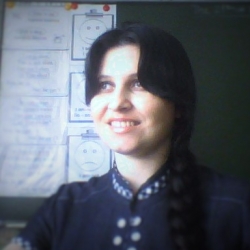
Местоимения many , much и a lot of .
6 class
Организационный момент.
- Good morning, boys and girls! My name is Anzhela Nikolayevna. Today I’ll be your English teacher. Sit down, please.
Намятова Анжела Николаевна, МОУ "Баженовская СОШ"

How are you?
I am glad to see you here. How are you? I’m very well, thanks. Are you ready to work at our lesson? So, let's start.

Do you like … ?
Речевая зарядка.
-Before we’ll start I want to know…
-What do you like to eat for breakfast? (For example, I like to eat cakes for breakfast. I like to drink juice for breakfast.)
-Fine, thanks.
-I have a basket with food. Please, take something and say: What is it? (Ребёнок вытаскивает из корзинки продукт и называет его – It is an apple.)
-Do you like eggs / butter / apples / cucumbers / bread / rice / coffee / sugar? (Yes, I do. / No, I don’t.)
Повторение .
-Can we count eggs, cucumbers, apples? (Yes, we can.)
-Please, count eggs, cucumbers, apples.
-Скажите, как называются существительные, которые мы можем посчитать? (Исчисляемые) (Табличка «исчисляемые существительные» появляется на доске)
-You’re right: a sweet – 2 sweets, an egg – 4 eggs.
-Can we count bread, butter, sugar? (No, we can’t.)
-That’s right: we say some butter, some milk.
-Скажите, как называются существительные, которые мы не можем посчитать? (Неисчисляемые) (Табличка «неисчисляемые существительные» появляется на доске)
-Look at the screen and correct the mistakes.
Yes, I do. – No, I don’t.

countable
uncountable
MANY
MUCH
Новый материал.
«Countable / uncountable»
-On the screen there are countable and uncountable nouns. Назовите существительное и скажите, можно его посчитать или нет. Если можно – назовите его во множественном числе, если нет – выразите количество с помощью слова some . ( Potatoes – Some bread )
milk
potato
apple
rice
honey
egg

many , much and a lot of
many
?
-
много
much
много
«many / much»
-What does “many / much” mean?
-Местоимения “many / much” обозначают МНОГО.
-“many” употребляется с исчисляемыми существительными, “much” – с неисчисляемыми, и, как правило, только в отрицательных и вопросительных предложениях.
-В утвердительных предложениях вместо “many / much” употребляется местоимение “a lot of”, которое имеет то же значение (МНОГО)
a lot of
+

many , much and a lot of
I don’t eat much butter . –
Я не ем много масла.
Do you have many friends ? –
У вас много друзей?
We need a lot of apples . –
Нам нужно много яблок.
-
?
-РАЗБОР ПРИМЕРОВ: I don't eat much butter . – “Butter” is an uncountable noun so we use “much”. Я не ем много масла. И т. д.
-Определите, какое местоимение мы вставим при переводе предложений на английский язык и объясните свой выбор.
У нас много хлеба. (a lot of)
У вас много книг? (many)
Мне не нужно много сыра. (much)
+

I know … … in this town.
a lot of
sweets
books
people
Закрепление.
-You have words “many/much/a lot of” and some pictures: people, sweets, books, museums, food and meat.
-Please, glue these words and these pictures on your sheets and fill in the gaps. Вклейте слова и картинки на листы, которые лежат у вас на столе, в места пропусков.
-Let’s check your sentences.
meat
food
museums

Ролевая игра.
- Do you like to go shopping? Let’s go to the shop and buy some food.
- Look at the screen and listen to the conversation. What is the customer buying?
- Act out the conversation.
The conversation “In the shop”.

- It was great. Thank you, sit down, please.

A sad birthday.
Winter doesn’t bring much cold.
Autumn doesn’t bring much gold.
Summer doesn’t bring much sun.
A birthday doesn’t bring much fun.
Работа с песней.
-And now listen to the song and choose the best name for it. Explain your answer.
A sad birthday
Bad weather
Life on planet Mars
-Do you agree with the poem?
-What gold does autumn bring?
-Can you count sun, fun, gold, cold? Why?
-Why is the song sad? (The song is sad because a birthday doesn’t bring much fun.)
-Что нужно сделать, чтобы песня стала весёлой? (Use “brings a lot of” instead “doesn’t bring much”.)

A happy birthday.
Winter brings a lot of cold,
Autumn brings a lot of gold,
Summer brings a lot of sun,
A birthday brings a lot of fun.
- Which variant of the song do you like better? Why?
-Let’s sing this song about happy birthday. But first repeat after me:
-winter, why, when;
-brings, sings, rings;
autumn, birthday;
Winter brings a lot of cold,
Autumn brings a lot of gold,
Summer brings a lot of sun,
A birthday brings a lot of fun.
-Sing alone.

many
much
a lot of
Подведение итогов .
-What words did we learnt at this lesson? (We learnt words “many/much/a lot of”)
-When do we use these words? (We use “many” if the word is countable. We use “much” if the word is uncountable.)
- Dear children! I have a lot of apples: good apples and bad apples. Good apples like our lesson. Bad apples don’t like our lesson.
- Если вам понравился сегодняшний урок – прикрепите к тарелке хорошее яблоко, если нет – плохое.

The lesson is over.
Good bye!
- Thank you very much for your active work. The lesson is over. Good-bye.
Домашние задание: p.126, ex. C.






































